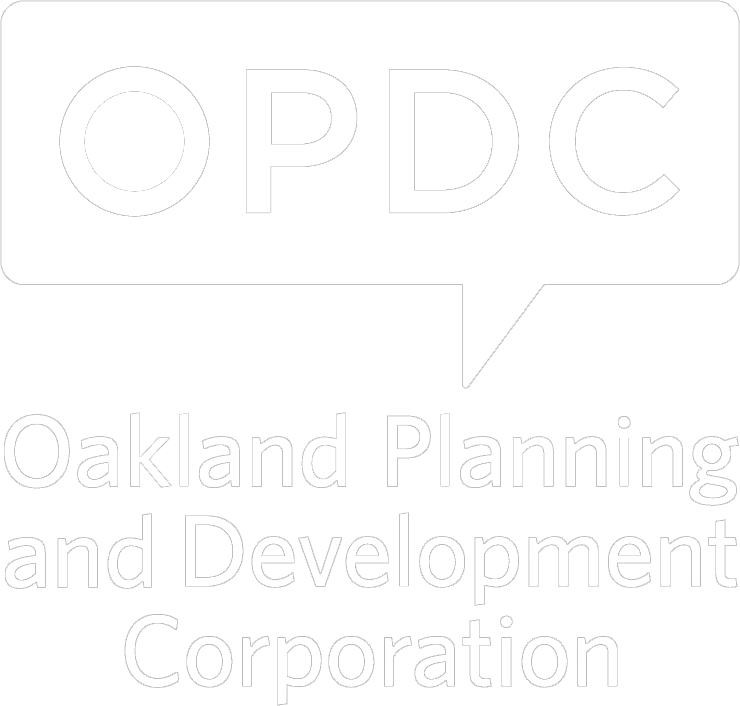Normally, the story of a zoning bill has a very long prelude and a pretty quick conclusion. Someone – a planner, a resident, a local stakeholder, or an organization – will make a recommendation to the Department of City Planning that the existing zoning for a particular area should be re-examined. City Planning will study the area, and make a proposal for how the zoning could be altered. They’ll then take that proposal and hold public meetings to invite comment and feedback on the proposal, and they’ll make edits based on the feedback they receive. Depending on how complicated a change we’re talking about, this process could involve several back-and-forth drafts and public input. Only once City Planning is confident about their zoning change proposal will they forward it to the Planning Commission, which will review and vote on the proposal before sending it to City Council.
Sometimes, though, the story gets told backwards.
On Friday, September 17, the Mayor’s Office forwarded a bill to City Council that had been written by attorneys representing Walnut Capital, to re-zone 17+ acres of Central and South Oakland to support Walnut Capital’s development goals. The parcels included in the proposed re-zoning include some zoned R3-M (three-unit residential moderate density), RM-H (multi-unit residential high density), and R1A-H (single-unit attached residential high density), as well as a segment of the existing OPR-D (Oakland Public Realm district D). City Planning had the chance to look at the bill before it went to City Council, but no opportunity to introduce it for consideration as part of the ongoing Oakland Plan process.
At the regular City Council meeting on Tuesday, September 21, Councilman Bobby Wilson introduced the bill as 2021-1906 and remanded it to the Land Use and Economic Development Committee, for that committee to refer to the Planning Commission. Oakland residents organized a petition for a public hearing on the bill and submitted it on Friday morning, September 24. At the next meeting of the Land Use and Economic Development Committee on Wednesday, September 29, the committee voted to hold the bill pending the citizen-demanded public hearing. The hearing is scheduled for Tuesday, October 5 at 3:00 p.m. All those who wish to testify at this Zoom meeting must register to speak with the City Clerk’s office via the form at pittsburghpa.gov/clerk/council-meetings or by calling 412.255.2138. You must register to speak by noon on October 5.
City Council now has a choice about how to handle this bill.
If they decide to send it to the Planning Commission, the Commission will review the bill, the process by which it was developed, and its content. They will consult with the Department of City Planning, and they will hold their own public hearing of the bill at which any member of the public can speak and provide comment. Within 90 days, the Planning Commission must return the bill to Council for them to vote on it.
Or – and this is not as crazy as it sounds – they can choose to just hold onto the bill for a while. It can sit on the Committee’s table until the Oakland Plan process is complete, and a new zoning map for Oakland has been drafted and sent to the Planning Commission for their review. The Department of City Planning estimates the final version of the Oakland Plan could be ready for Council’s vote as soon as this spring, so it’s not too long to wait. With the Oakland Plan in hand, builders and investors with grand ideas for Oakland will have plenty of tools available to them as they assemble the projects that will define the next few decades of development here – and the community will have the tools it needs to ensure those projects serve the public interest and address neighborhood priorities and needs.
Sending the bill straight to the Planning Commission would short-change the Oakland community and would undercut the Oakland Plan process, disregarding the hundreds of hours that residents and stakeholders and planners have put into the plan so far. It would also force those same residents and stakeholders and planners to take more time to consider a single site in isolation, just to meet a single developer’s self-imposed project schedule. That isn’t fair to any of us.
Tell Council what you think - contact your City Council member or testify at the hearing on Tuesday, October 5.
To watch the live stream of the meeting, visit pittsburghpa.gov/council/council-live OR www.youtube.com at 3:00 p.m. on October 5.
10.7.2021: Thanks to everyone who participated in the October 5 hearing. You can view the recording here.
